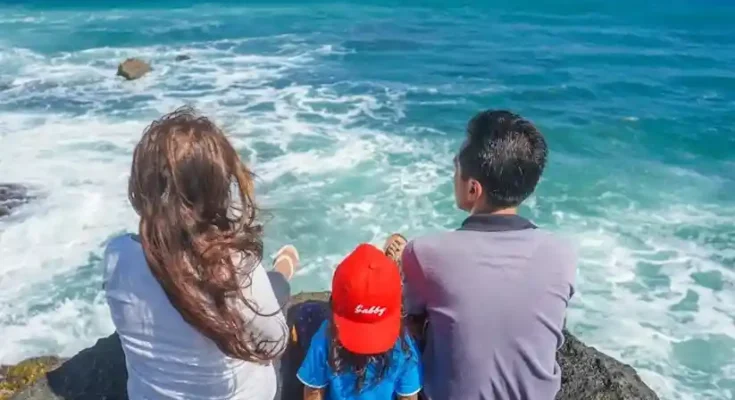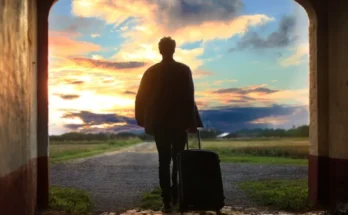The Magic of Moving Beyond the Familiar:
There is something incredibly powerful about stepping out of your regular routine and setting off to a new place. The sights are unfamiliar. The food tastes different. The air smells fresh. Suddenly, your senses wake up. Travel is more than just visiting a location. It is about discovering a new version of yourself with each journey. According to educators at Swarthmore College’s study abroad programs, such experiences cultivate independence, adaptability, and a broader worldview—key ingredients of personal transformation
When you travel, whether it is to a beach town a few hours away or a historic city across the globe, you are doing more than taking a break. You are recharging your spirit, expanding your worldview, and giving your mind the space to breathe. In many ways, traveling is like hitting a reset button on your life.
The True Value of Tourism in Our Lives:
Tourism is often misunderstood as a luxury or something only the wealthy can enjoy. But the truth is, travel should be seen as a necessary investment in our personal growth. Visiting different places exposes us to new ideas, cultures, and ways of thinking. It challenges our assumptions and teaches us empathy.
Every place has its own story to tell. A walk through ancient ruins teaches history better than any textbook. A meal shared with locals teaches kindness that transcends language. Even the unexpected moments like missed buses or sudden rain showers become stories that shape who we are.
Tourism also plays a vital role in communities around the world. It supports local businesses, creates jobs, and helps preserve cultural heritage. When done responsibly, travel can uplift entire regions and build bridges between people.
Traveling With Others Strengthens Bonds:
-
Family, Friends, and Colleagues on the Road
Traveling alone can be deeply enriching, but there is something magical about sharing the road with people you care about. A trip with friends turns into a gallery of laughter and late‑night talks. Traveling with family creates memories that children will hold forever. Even a work trip with colleagues, when thoughtfully planned, can become a chance to build stronger bonds. A professional post on LinkedIn highlights how travel enhances both personal and professional growth—boosting cross-cultural communication, empathy, leadership skills, and resilience in shared experiences
The shared experience of navigating a new city or hiking up a mountain does more for connection than any dinner table conversation at home. You see new sides of each other. You face challenges together and celebrate victories no matter how small. These shared journeys deepen trust and turn good relationships into great ones.
-
See Each Other Differently
Sometimes we need to leave our everyday lives behind to truly appreciate the people in them. When you travel with others, you are removed from the roles and routines that often define your relationships. A father becomes a fellow adventurer. A co-worker becomes a companion. A childhood friend becomes someone new through the lens of shared discovery.
Traveling together teaches patience, understanding, and flexibility. It reminds us that the world is large, but we are not alone in it.
How Often Should You Travel?
-
Finding a Rhythm That Fits Your Life
There is no universal rule for how often one should travel, but the truth is we all need a break more than we admit. Life moves fast and responsibilities pile up. But when we keep postponing time for ourselves, we slowly lose the joy in everyday moments.
Ideally, planning at least two or three getaways a year can make a significant difference in your mental and emotional well-being. These do not always have to be grand or expensive. A weekend away can be just as restorative as a two-week vacation if planned with intention.
For those with busier schedules or tighter budgets, even day trips or local adventures can do wonders. The key is to keep that spirit of exploration alive and allow your mind to experience something new.
-
The Benefits of Regular Getaways
When you travel regularly, you begin to notice subtle but important changes. You return home with more clarity. You handle stress better. Your conversations become more interesting. Your creativity improves.
Travel acts as a soft reset for your system. It gives you perspective. It reminds you that there is more to life than your daily routine. And that realization often leads to better decisions, improved productivity, and a renewed sense of purpose.
Planning the Perfect Trip:
-
Start With Purpose Not Perfection
Planning a trip does not need to be overwhelming. It starts with asking a simple question: What do I need right now? Is it rest, adventure, inspiration, or connection? Once you know the purpose, the destination often becomes clear.
From there, set a realistic budget and timeline. Planning in advance not only saves money but also gives you something to look forward to. Choose accommodations that suit your needs. If you are traveling with family, comfort matters. If it is with friends, maybe a shared rental offers better bonding opportunities.
Do a little research about your destination, but leave room for spontaneity. Some of the best memories are made in unplanned moments.
-
Involve Everyone in the Experience
If you are traveling with others, involve them in the planning. Let everyone pick one activity or place they are excited about. This way, the trip becomes meaningful for all and everyone has a stake in the experience.
Pack wisely, but not excessively. Focus on essentials and leave room in your suitcase for the unexpected. More importantly, pack an open mind. The real magic of travel lies in the unknown.
Travel as a Lifestyle Not an Escape:
The best kind of travel leaves a lasting impact. It does not end when the plane lands or the car parks back in your driveway. The stories, the flavors, the new habits, and the new mindset often stay with you.
You might return with a desire to cook a dish you tasted abroad. Or maybe you start walking more because you loved exploring cities on foot. Sometimes travel simply teaches gratitude for what you already have at home.
When you begin to see travel not as an escape but as a vital part of living fully, it becomes easier to make time for it. You begin to prioritize experiences over possessions. Memories over material things. And connection over convenience.
Conclusion:
Travel teaches us more than any classroom ever could. It brings joy, connection, perspective, and purpose into our lives. Whether you go far or stay close to home, whether you travel with loved ones or meet strangers along the way, every journey leaves a mark.
Make space in your life to travel. Do it often. Plan it with care. Share it with people who matter. And most importantly, let it change you. Because in the end, travel is not just about seeing the world. It is about learning to see yourself and your life with new eyes.




